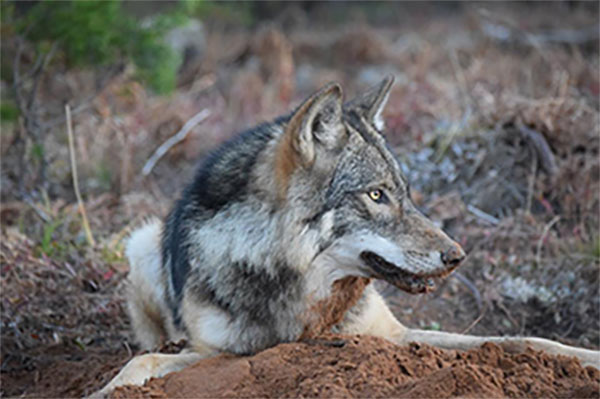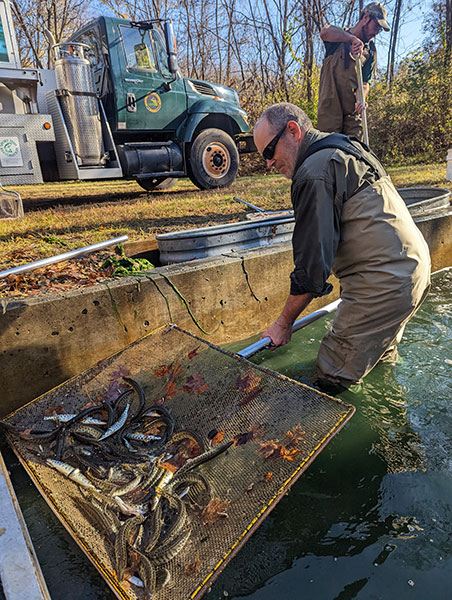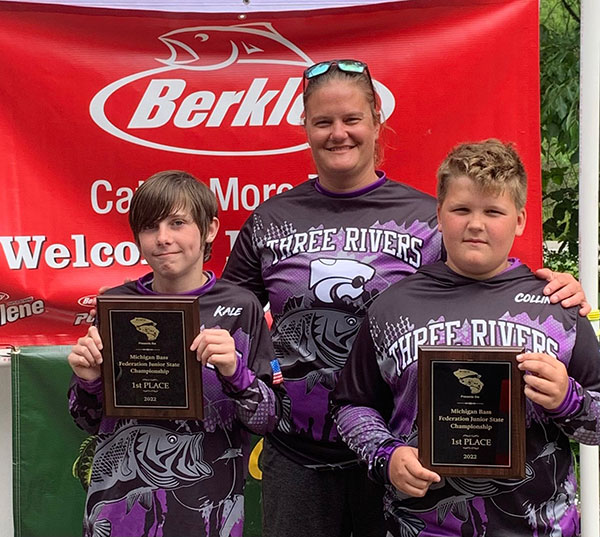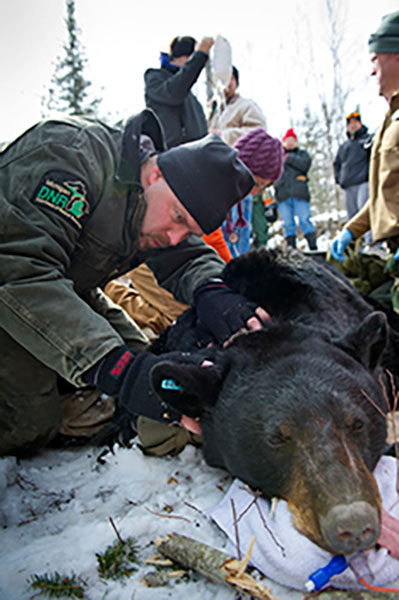- Details
MDNR Report
 Michigan Wolf
Michigan Wolf
Wildlife biologists from the Michigan DNR released their findings of the latest Michigan gray wolf survey.
The survey, conducted in early 2022, shows the wolf population in the Upper Peninsula remains stable, as it has for more than a decade.
“These results show a continued trend of statistical stability, indicating that gray wolves may have reached their biological carrying capacity within the Upper Peninsula,” said Cody Norton, the DNR’s wolf specialist. “Wolf presence has only been confirmed twice genetically in the Lower Peninsula in recent times; in 2004 and 2014.”
The survey, which is conducted every other winter, covers the U.P., including Drummond, Neebish and Sugar islands, with Isle Royale excluded. The wolves on Isle Royale are managed by the National Park Service.
Completing analysis of the field data collected during the DNR’s 2022 wolf survey was delayed during the past year as wildlife biologists focused on updating the state’s Wolf Management Plan.
The plan was updated using all pertinent social and biological scientific knowledge on wolves to date.
- Details
MDNR Report
 Michigan Stocked 7.8 Tons of Fish Last Fall
Michigan Stocked 7.8 Tons of Fish Last Fall
Anglers will soon benefit from the 624,205 fish - which collectively weighed 7.8 tons - that were stocked by the Michigan DNR at 85 locations across the state.
“It was another outstanding fall fish stocking season that will provide enhanced fishing opportunities throughout Michigan,” said DNR fish production manager Ed Eisch. “When added to our successful spring and summer stocking efforts, that brings the total for 2022 to more than 17 million fish stocked in Michigan’s waters.”
The number and type of fish stocked vary by hatchery, as each facility’s ability to rear fish differs because of water supplies and temperature. In Michigan, there are six state and three cooperative hatcheries that work together to produce the species, strain and size of fish needed by fisheries managers. These fish must then be delivered at a specific time and location for stocking to ensure their success. Most fish in Michigan are stocked in the spring.
Fall 2022 fish stocking consisted of four species of fish: brook trout, Eagle Lake and steelhead strain rainbow trout, walleye and muskellunge.
- Details
By Louie Stout
 Team Captain Carrie Balk with Kale Parr (left) and Collin Balk
Team Captain Carrie Balk with Kale Parr (left) and Collin Balk
Three Rivers High School Principal/Three Rivers Bass Fishing Team Captain Carrie Balk poses with Kale Parr (left) and team partner Collin Balk after they won the Michigan TBF Junior State Championship.
It was the school's first year as a bass fishing team.
Not all kids want to sit around and play video games, says Carrie Balk, Three Rivers High School principal.
She found out first hand. When her son Collin approached her last year about starting a Three Rivers High School fishing club, she decided to investigate the possibilities.
“I sent out a survey to gauge students’ interest and heard back from more than 90 kids,” said Balk. “That’s three times as many that are on our football team so I decided I better look into it.”
Not only was the Three Rivers Wildcats Bass Fishing Team formed, but 40-some kids stayed active throughout the summer.
If that weren’t enough, son Collin and buddy Kale Parr won The Bass Federation Junior Division State Championship at Wampler’s Lake. That earned them a spot in The Bass Federation Junior World championship at Kentucky Lake where they finished fourth.
- Details
Support from hunters and landowners is essential for early detection and monitoring of chronic wasting disease in white-tailed deer.
This year, there are several options for submitting samples for CWD testing depending on where you are in the state.
- CWD self-submission kits
- Sample submission sites and participating taxidermists
- Testing for a fee
- Additional information
Reminder: Online harvest reporting is required for all hunters who successfully take a deer.
CWD self-submission kits
Pick up a free lymph node shipping kit with instructions and materials for shipping lymph nodes to Michigan State University Veterinary Diagnostic Laboratory, including a prepaid overnight shipping label. There is no charge for the CWD testing. Kits are available for deer harvested in the following counties:
- Clinton
- Dickinson
- Eaton
- Gratiot
- Ingham
- Ionia
- Jackson
- Kent
- Montcalm
More information on how to obtain a test kit is available on the CWD info for hunters webpage.
Sample submission sites and participating taxidermists
Sample submission sites
Drop off the sample and harvest information at an unstaffed drop box or a staffed sample submission site in this year's CWD monitoring areas.
Learn more and find a disease sample submission site.
We need deer heads from the following counties in the Lower Peninsula:
- Bay
- Berrien
- Branch
- Cass
- Genesee
- Huron
- Isabella
- Hillsdale
- Kalamazoo
- Lapeer
- Lenawee
- Livingston
- Macomb
- Midland
- Monroe
- Muskegon
- Oakland
- Oceana
- Ottawa
- Saginaw
- Sanilac
- St. Clair
- St. Joseph
- Tuscola
- Washtenaw
- Wayne
We also need deer heads from the core CWD area in the Upper Peninsula, which includes portions of the following counties:
- Delta
- Dickinson
- Menominee
Participating taxidermists
Successful hunters in the CWD area can bring their deer to participating taxidermists to have the jaw and lymph nodes removed. This accomplishes CWD testing goals while allowing hunters to preserve part of the animal that would otherwise be incinerated after being tested at the Wildlife Disease Laboratory.
Testing for a fee
Deer harvested in all other counties in Michigan can be submitted for CWD testing through one of the following participating U.S. Department of Agriculture-approved laboratories for a fee.
- Instructions to submit samples to the Michigan State University Diagnostic Laboratory.
- Instructions to submit samples to the Wisconsin Veterinary Diagnostic Laboratory.
Results from deer submitted to an approved USDA laboratory using testing for a fee will be sent directly to the hunter from the laboratory.
Additional information
New this year: Online harvest reporting is required for all hunters who successfully take a deer.
Visit Michigan.gov/Deer for harvest reporting information, deer hunting season dates and regulations.
Questions? Contact the DNR Wildlife Division at 517-284-9453.
- Details
MDNR Report
 DNR biologist with bear
DNR biologist with bear
The Michigan DNR asks hunters and others who spend time outdoors to keep an eye out for bear dens while in the field this fall and – if they find one – to report the location to the DNR to help with an ongoing bear management program.
If you find a bear den in the northern Lower Peninsula, record the location with a GPS unit, if possible, and contact Mark Boersen at 989-275-5151 or BoersenM@Michigan.gov with specific location information.


